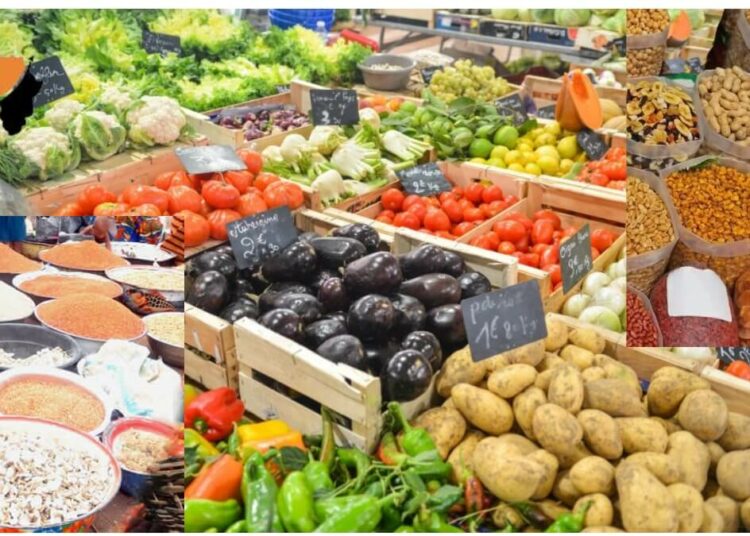There is no doubt that Nigeria is currently grappling with a severe food crisis that has seen the prices of essential food items soar beyond the reach of many of its citizens.
The situation is particularly dire as the country struggles to balance food affordability and widespread hunger amidst challenging economic realities.
The roots of Nigeria’s food crisis can be traced back to several interrelated factors. Over the past few years, factors such as climate variability and extremes, conflicts between farmers and herders, banditry, inflation and impact of the fuel subsidy removal among others have continues to exacerbate existing vulnerabilities in the food supply chain.
While restrictions on movement of food in the global supply chain due to the ongoing Ukraine-Russia war have also led to a sharp increase in food prices.
Nigeria is not exempted from these challenges. According to data obtained from Trading Economics, a company dedicated to providing accurate information for 196 countries, Nigeria’s current food inflation rate stands above 40 per cent, hitting record highs and pushing more households into food insecurity.
Nigeria’s economic challenges are also compounded by seasonal factors. The country relies heavily on rain-fed agriculture, which means that food production is subject to the whims of the weather.
Typically, between June and August, there is a noticeable scarcity of food as the country waits for the new harvest. This annual period of stress has been exacerbated by the current economic conditions, making it even harder for Nigerians to afford food.
However, some experts are optimistic that Nigeria can surmount these challenges with the right approaches.
The National President of the All Farmers Association of Nigeria (AFAN), Arc Kabir Ibrahim emphasised the point that while food availability exists, the affordability crisis remains a pressing issue, especially given the economic context and the purchasing power of the naira.
In a chat with LEADERSHIP, Ibrahim stressed the need for sub-national involvement in ensuring food security, as well as encouraging private sector investment in agriculture.
According to the farmers’ leader, this affordability crisis has profound implications for food security in the country, stating that inability to purchase food leads directly to hunger.
He said, “If you see the food and you can’t afford it, then you go hungry. So there is a nexus between the two, and unfortunately, that’s where we are today.”
He emphasised the critical need for state and local governments to play an active role in achieving food security.
“To truly achieve food security, the sub-nationals must be involved, agriculture happens in the states and local governments, and they need to step up their efforts. The federal government can only provide the framework and environment for this to happen.”
Ibrahim also highlighted the importance of encouraging private investment in agriculture, noting that the global economy is largely driven by the private sector, with only 20% being government-driven.
Government Efforts:
In spite of these challenges, the Renewed Hope Agenda of the current administration of President Bola Tinubu has become the cornerstone of the Ministry of Agriculture and Food Security policy focus, anchored on the National Agricultural Technology and Innovation Policy (NATIP) 2022-2027, with goals to ensure food and nutrition security, while promoting market access, competitiveness, innovation and employment generation.
First came the state of emergency on food security declared by the President, followed by several intervention policies by the ministry to arrest the grim trends of food and nutrition insecurity faced by Nigerians.
In October last year, the minister of agriculture and food security, Abubakar Kyari unveiled a strategic roadmap to drive the food security agenda of the federal government with focal areas that hinged on integration, sustainability and resilience to Nigeria’s agricultural sector challenges.
The past one year has been a testament to the government’s commitment to these goals with the launch of dry season farming being a game-changer.
While taking stock of the achievements in the agricultural sector during the sectoral update to mark the first anniversary of the President in office, Kyari disclosed that the ministry has supported 107,429 wheat farmers to cultivate 118,657 hectares of wheat across 15 states.
The initiative according to the minister has yielded an impressive output of 474,628 metric tonnes while injecting an estimated value of N309 billion back into the economy.
This has also been accompanied by a buffer against food insecurity, where the federal government released and distributed 42,000 metric tonnes of assorted food commodities to vulnerable households across the country, including procurement and distribution of milled rice to all states and FCT to dampen escalating food prices.
The minister said that he ministry had also undertook significant measures to curb persistent food inflation by distributing improved seeds, seedlings, agrochemicals, and equipment to farmers, to enhance food production capabilities.
The Central Bank of Nigeria’s contribution of 2.15 million bags of fertiliser, distributed free of charge to farmers further bolstered this effort.
During this period, the livestock sector also saw the procurement and distribution of over 14 million doses of vaccines, the establishment of animal health centres to bolster animal health and productivity.
The ministry’s response to the ginger blight epidemic with the provision of N1.6 billion to support affected ginger farmers in Kaduna and Plateau states and other pests included aerial control operations and the distribution of fertilisers and pesticides.
There is also an ongoing partnership with John Deere and Tata Africa to supply tractors and combine harvesters which has raised hope of revolutionising agricultural mechanisation.
The development of 23 improved crop varieties and the promotion of e-extension services have been pivotal in advancing agricultural research and knowledge dissemination, among others achievements in the past one year.
The minister assured that, “Consistent with the Renewed Hope Agenda, we are building partnership and collaboration to drive more effective implementation of our intervention projects, to foster public trust and achieve transformative outcomes and collaborating with States in the area of registration of farmers and implementation of interventions”.
While Nigerians look to the future of a food and nutrition secured nation, the Ministry of Agriculture and Food Security promised to consolidate these achievements to further develop the agro-industrial sector, and enhance the nation’s food export potential while creating jobs.
It’s also believed that the past year has laid a good foundation for a sustainable and prosperous agricultural future with a new chapter in Nigeria’s journey towards self-sufficiency and economic vitality through agriculture.





